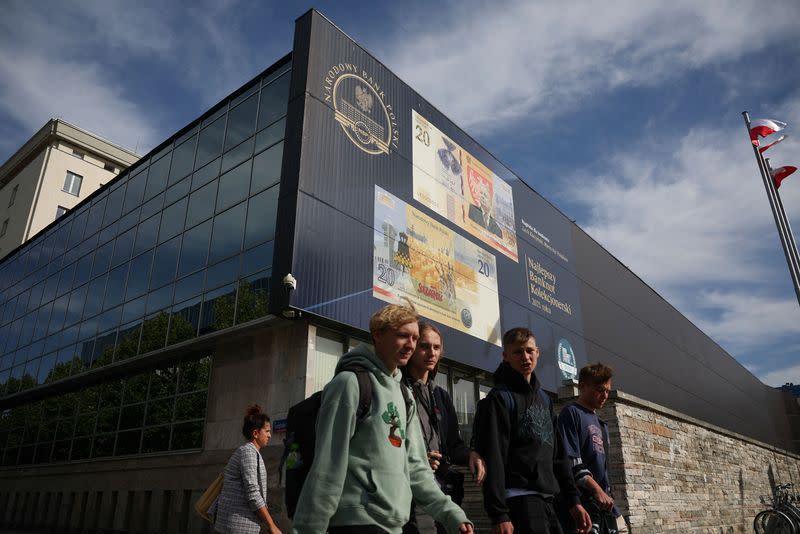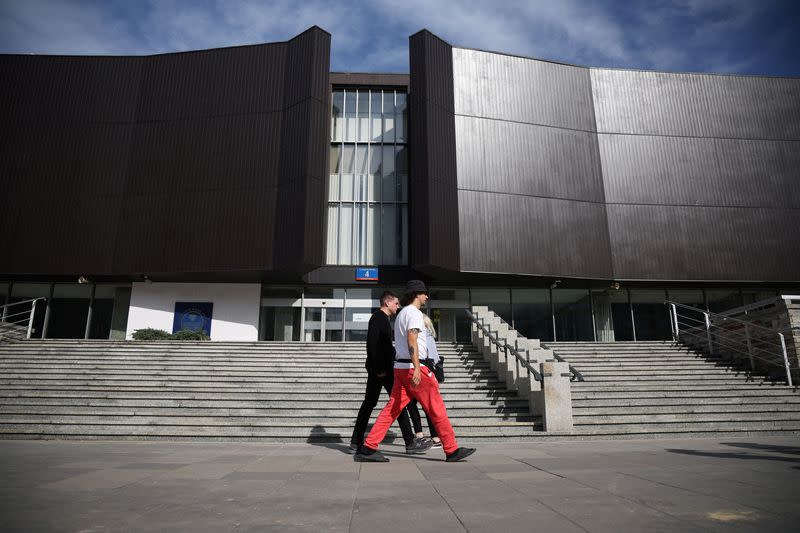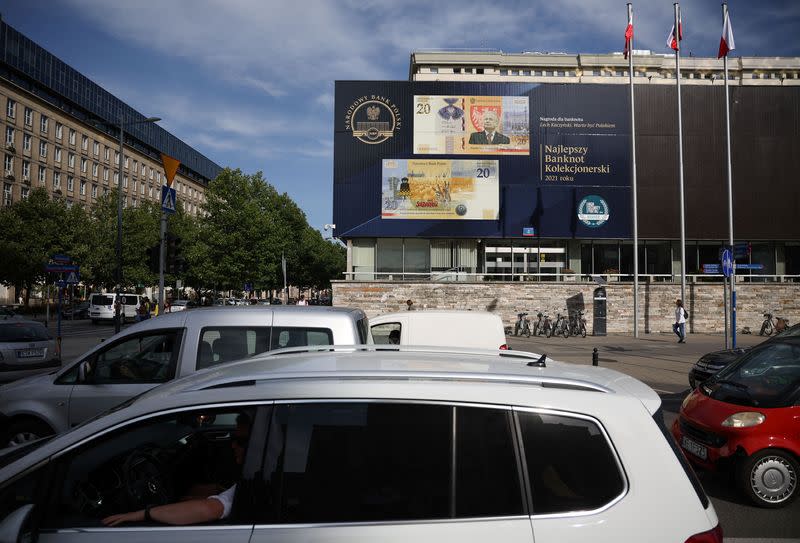Poland's central bank could hold rates in October, governor says
By Anna Koper
WARSAW (Reuters) -Poland's central bank could hold rates next month or opt for a small increase, governor Adam Glapinski said on Thursday, amid concerns that high borrowing costs could weigh too much on the economy.
Central Europe's monetary policymakers were the quickest last year to begin raising interest rates and accelerated the pace this year as inflation surged, but some are starting to slow or possibly end their tightening cycles.
The Czech central bank was the first to call a halt to its rate-hike cycle in August, leaving rates at 7.00%, although it has not completely shut the door on the possibility of another rate increase.
"The next increase will also be either 25 (bps) or nothing at all," Glapinski told a news conference. "That's the logic behind it, unless something changes in these parameters we're observing, which means that this soft landing is just around the corner."
Glapinski's comments signal a potential slowdown in the Polish central bank's tightening cycle that began last October in an effort to curb mounting consumer price growth.
The central bank raised its main interest rate by 25 bps in September, the smallest increase in its current rate hike cycle so far, as it expects lower growth and continued inflationary pressure.
"In line with our expectations, the 25 bps rate hike was, on the one hand, an attempt to respond to stubborn inflation and, on the other hand, to increasingly clear signs of slowing economic activity as a result of external energy shocks," ING analysts said.
The ING analysts predicted rates will still go up to 7.5%, either by the end of this year or early next.
Data released last month showed inflation reached 16.1% in August, the highest in more than two decades.
Glapinski said on Thursday inflation should be under control by the end of next year and that rate cuts could be expected.
"When it comes to NBP (central bank), we will cut rates perhaps in the middle of the year, the last quarter of next year," he told the news conference.
He added that the central bank would like to see single-digit inflation, and that anti-inflationary measures brought in by the government could start to take an effect early next year.
He also signalled that external factors, such as the war in Ukraine, would affect how soon the tightening cycle will end.
(Reporting by Joanna Plucinska, Justyna Pawlak, Pawel Florkiewicz, Anna Koper and Anna Wlodarczak-Semczuk. Editing by Jane Merriman)

 Yahoo Finance
Yahoo Finance 


